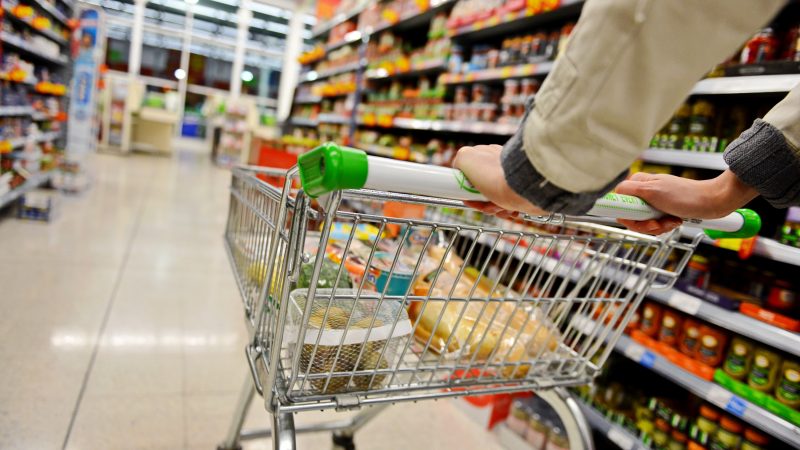
The war in Ukraine has given new urgency to discussions in the UK about food security and sustainability. Not because we are directly vulnerable to threats to grain supplies from Ukraine and Russia: we only import about 15% of our wheat, and that comes from Canada, France, Germany and the US. Rather, the risk is that the government and some food lobbies will use the developing global food crisis to reduce our reliance on imported animal foodstuffs by intensifying the most damaging forms of domestic agriculture. (The sharply rising price of Russian fertiliser notwithstanding.)
Instead of this damaging course of action, we should press for a sustainable pivot towards self-sufficiency. Above all, that requires a reduction in meat consumption, as advocated by the National Food Strategy. And alongside that must come a decisive shift towards farmer-focused food chains, with a target to double the amount of locally-sourced (or localised) food in our shopping baskets, as Vicki Hird of Sustain has argued.
All that fits well with what we know about Labour’s direction of travel. While its current food and agriculture stance is still to be defined, the 2019 manifesto put forward three propositions that would probably form the basis of a new policy:
- On local food, put farmers, fishers, food producers and workers at the heart of plans for delivering healthy food locally. Support local food networks, expand access to farm holdings and ensure rights of union representation for all food and agricultural workers.
- On food security, establish a National Food Commission and make food security a reason to intervene in the economy and work with local councils to minimise food waste.
- On net zero carbon, achieve net-zero-carbon food production in Britain by 2040.
If implemented, these policies would be good for the nation’s diet and mark a radical shift towards sustainable food production and distribution, which is vital for biodiversity and soil quality. They would reduce our reliance on the long food chains and processed foods, which are the stock in trade of our creaking supermarket system. But there is another reason for which they should be of particular interest to Labour as it looks towards the next general election.
Re-investing in public services is central to Labour’s approach to levelling up – but so is investment and good jobs. Building local food infrastructure is an important way of creating employment and recycling money that otherwise leaks out through the supermarket system. Food – the largest UK manufacturing sector, employing more than 440,000 people – needs to convert to a more sustainable way of doing business, investing in community wealth building and the circular local economy rather than trucking vast amounts of sugar-, salt- and fat-laden food around the country. Smaller independent food outlets in local areas have been shown to create a job for every £42,000 turnover – three times the return offered by supermarkets.
How can Labour support the shift to a new food economy? On the supply side, first, farmers must be supported to shift away from the supermarket contracts that most of them loathe, towards local markets, a move that most would welcome according to a recent survey in England and Wales. Only 5% wanted to supply supermarkets. Most would prefer to diversify towards alternative markets, including food hubs, direct sales, independent retailers and caterers.
Second, we need to boost the viability of SME producers of fruit, vegetables, dairy and livestock and increase the land area dedicated to small holdings. Research by Sheffield University suggests that growing fruit and vegetables in just 10% of a city’s gardens and other urban green spaces could provide 15% of the local population with their ‘five-a-day’.
But, third, if we are to boost the supply of home produce from small- and medium-sized farms, we need to connect them to local markets – and this is an agenda for which Labour mayors and local authority leaders don’t have to wait for a change of government. Even with the most sophisticated IT ordering and logistics systems, there still needs to be a physical space, a local hub where produce can be aggregated and then distributed. Food hubs can provide the link between producers and consumers, aided by the power of public procurement to satisfy demand from anchor institutions such as school meals services, universities and hospitals.
Concerted investment by government, mayoral combined authorities and local authorities could create local networks of food hubs and food outlets, underpinned by a strengthening of the rules governing public procurement. All of this carries costs, so it would help if the forthcoming food white paper endorsed the value of investment in:
- Farmers’ conversion costs, so that they can shift from supplying supermarkets and wholesalers, focusing instead on local markets.
- Incentives to drive up domestic output of fruit, vegetables and the other ingredients of a healthy diet by existing and new producers.
- Local food infrastructure – food hubs, equipped with chillers, freezers, kitchens, IT and logistics systems.
Not so long ago, Britain, in the face of the U-boat threat, doubled production in food in less than a decade. Faced with another emergency, it’s a trick we need to pull off again, and more. Anything less, as Tim Lang puts it in Feeding Britain, would be “immoral and short-sighted”.




More from LabourList
‘The Sherriff of Wild Westminster: what must change in elections bill’
‘The hope that kills you’: Reflections from the final day in Gorton and Denton
MPs, union leaders and organisations react to ‘bruising’ Gorton and Denton result